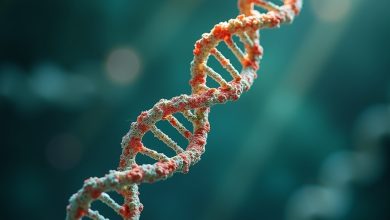
The Impact of High-Protein Diets on Satiety and Thermogenesis
Understanding High-Protein Diets
A high-protein diet is one that emphasizes the consumption of protein-rich foods such as meat, fish, eggs, dairy products, legumes, and nuts. These diets have gained popularity in recent years, especially among those looking to lose weight or build muscle. But what exactly makes protein so special? Two of the most important <a href="https://www.gpnhg.com/intermittent-fasting-a-comprehensive-analysis-of-its-effects-on-body-composition-and-metabolic-health/”>effects of high-protein diets are their impact on satiety—the feeling of fullness—and thermogenesis, which is the process of heat production in the body.
What is Satiety?
Satiety refers to the sensation of fullness that occurs after eating. This feeling plays a significant role in how much we eat and can help regulate our food intake. When we feel satisfied, we are less likely to reach for snacks or overeat during our next meal. Protein is known to enhance this sensation, leading to greater control over our appetite.
How Protein Affects Satiety
Research has shown that protein-rich meals can increase satiety more than meals high in carbohydrates or fats. Here are a few reasons why:
- Hormonal Response: Protein consumption triggers the release of hormones such as GLP-1 and PYY, which signal to the brain that we are full.
- Slower Digestion: Protein takes longer to break down in the stomach, leading to a prolonged feeling of fullness.
- Lower Caloric Intake: Studies have indicated that individuals who consume higher amounts of protein tend to eat fewer calories overall, as they feel full that much quicker.
Thermogenesis Explained
Thermogenesis is an essential <a href="https://www.gpnhg.com/intermittent-fasting-a-comprehensive-analysis-of-its-effects-on-body-composition-and-metabolic-health/”>metabolic process that occurs when our bodies create heat by burning calories. This process can be influenced by factors such as diet, exercise, and environmental temperature. High-protein diets can significantly enhance thermogenesis, which can aid in weight management.
How Protein Boosts Thermogenesis
Eating protein can increase thermogenesis in the following ways:
- Higher Energy Expenditure: The thermic effect of food (TEF) is the energy required for digestion, absorption, and metabolism of food. Protein has a higher TEF compared to carbohydrates and fats, meaning your body burns more calories processing protein.
- Muscle Mass Maintenance: Consuming adequate protein helps maintain muscle mass, which is crucial for increasing overall metabolic rate. More muscle means a higher resting metabolic rate, leading to more calories burned at rest.
- Fat Oxidation: Some studies suggest that protein may enhance fat oxidation, which can further contribute to weight loss.
Combining Satiety and Thermogenesis for Weight Management
When it comes to weight management, combining the effects of high-protein diets on satiety and thermogenesis can be particularly beneficial. Here’s how:
- Reduced Snacking: By feeling full longer, individuals are less likely to snack between meals, which can lead to a lower overall caloric intake.
- Increased Caloric Burn: Enhanced thermogenesis means that even while at rest, the body is burning more calories, which can facilitate weight loss.
- Support for Muscle Growth: A high-protein diet supports muscle growth and repair, making it easier to maintain a healthy weight.
Practical Tips for Incorporating More Protein
If you’re interested in reaping the benefits of a high-protein diet, here are some simple tips to get started:
- Choose Lean Proteins: Opt for lean meats, poultry, fish, eggs, and plant-based sources like lentils and chickpeas.
- Snack Wisely: Consider protein-rich snacks such as Greek yogurt, nuts, or protein bars rather than sugary options.
- Plan Your Meals: Incorporate a source of protein into every meal to help maintain satiety throughout the day.
Conclusion
High-protein diets have a significant impact on both satiety and thermogenesis, making them a valuable tool for those looking to manage their weight effectively. By understanding how protein influences our appetite and metabolic rate, we can make informed dietary choices that support our health and fitness goals. Whether you’re looking to lose weight, maintain your current weight, or build muscle, incorporating more protein into your diet can be a smart and satisfying strategy.




